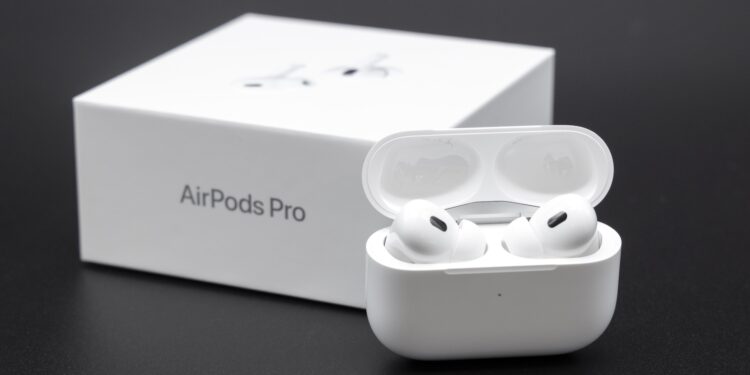AirPods are primarily known as wireless headphones. But according to a recent study by Apple, they could also be used for health monitoring in the future. With the help of AI and the built-in microphones, AirPods will be able to measure heart rate – without the need for an additional sensor directly on the skin. The whole process is based on the evaluation of heart sounds, which are captured by the AirPods' microphones and analyzed by AI models.
Apple has been investing in connecting technology and health for years. The Apple Watch is already an integral part of many fitness and health routines. Now the AirPods are also coming into focus. A new study by the company shows that AI models originally designed for speech recognition can also be used to analyze heartbeats. This discovery could form the basis of a new feature in future AirPod generations.
Core of the study: Heart rate via audio data
On May 23, 2025, Apple published a study titled "Foundation Model Hidden Representations for Heart Rate Estimation from Auscultation." In it, researchers explain how they used large-scale speech AI models to evaluate heart sounds. The goal was to estimate heart rate from phonocardiograms—audio recordings containing the sounds of the beating heart. Apple tested six well-known baseline AI models, including Whisper, wav2vec2, and wavLM. These models were originally developed for speech recognition and audio transcription. Apple also used its own model called CLAP, which was specifically trained to process a wide variety of audio data—not just speech.
- The models were trained using a publicly available dataset called CirCor DigiScope. The dataset contains approximately 20 hours of phonocardiograms, with individual recordings between 5.1 and 64.5 seconds long. The researchers divided the data into five-second snippets that shift every second, resulting in a total of 23,381 audio segments.
A human annotator had previously evaluated the heart sounds in these files. The models' task was to generate a precise heart rate estimate from the audio snippets. The goal was to test how accurately the AI models could determine the actual heart rate.
Results: Own model CLAP performs best
In a direct comparison, Apple's CLAP model performed best. It showed the lowest mean absolute error (MAE) across various tests, making it more accurate than all other models tested, including Whisper. The advantage of CLAP is that it was trained not only on speech, but also on other sounds—including many non-speech acoustic patterns relevant to heart sounds. This broad training base apparently helped the model achieve better results in analyzing phonocardiograms. The study concludes that AI models originally developed for speech can certainly be adapted for medical applications such as heart rate measurement. According to the researchers, they even represent a robust alternative to previous methods.
Possible application in future AirPods
The technology described in the study could be integrated directly into AirPods. AirPods Pro 2 already feature high-resolution microphones, which are used for noise cancellation and hearing health functions, among other things. Apple could use this existing hardware in the future to capture and analyze heart sounds. Rumors even suggest that Apple is planning to incorporate additional sensors, such as temperature and heart rate sensors, into future AirPods. Combined with AI-based audio analysis, AirPods could become a health gadget that you wear discreetly in your everyday life, continuously collecting vital data. The study also suggests that targeted fine-tuning of the models could lead to even more accurate results. In addition to pure heart rate measurement, applications that could detect more complex heart problems, such as cardiac arrhythmias or heart murmurs, at an early stage are also conceivable.
How AirPods could become mobile health monitoring
Apple is intensively investigating how AI and audio data can be used for health purposes. The latest study shows that AirPods could do more in the future than just play music or make phone calls. The devices' microphones, combined with smart AI models, could be used to precisely measure your heart rate – without the need for additional sensors on your skin. This would make AirPods an important component of digital health monitoring, easily and unobtrusively integrated into everyday life. (Image: Shutterstock / photoschmidt)





